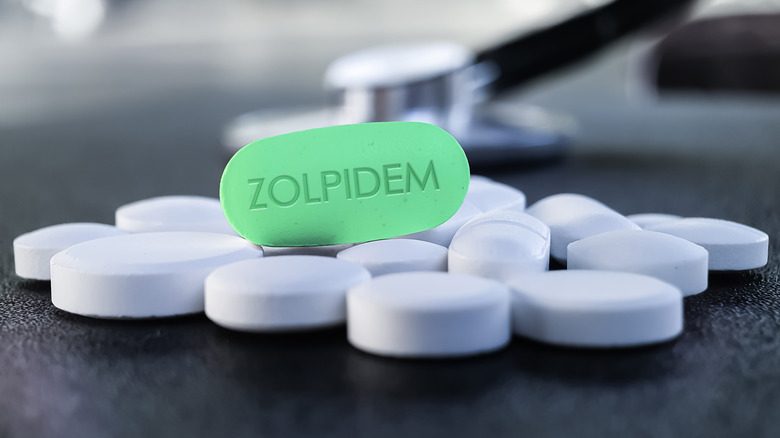Unusual Side Effects Of Taking Ambien
Do you have trouble sleeping at night? If so, you are not alone. Up to 70 million Americans struggle with sleep disorders, which can impair wellbeing and daily functioning. For this reason, roughly 4% of Americans turn to prescription sleep medicine, according to the Centers for Disease Control and Prevention (CDC). One of the most commonly used sleep medications is Ambien, in which the active ingredient is zolpidem tartrate (via RxList). According to Mayo Clinic, Ambien can be a great short-term solution to insomnia.
However, some side effects of Ambien can be just plain weird. Healthline interviewed its readers about the most bizarre side effects they experienced when taking Ambien. One reader described driving to the store and buying whipped cream while she was sleeping. Other readers reported hallucinations and out-of-body experiences.
A study published in The Primary Care Companion to The Journal of Clinical Psychiatry confirmed that some people experience hallucinations, confusion, delusions, amnesia, sleepwalking, and even "sleep-induced driving" when taking Ambien (via US National Library of Medicine).
If you have these rare side effects, stop taking Ambien and call your doctor
Delirium, hallucinations, and confusion seem to be rare side effects, affecting between 0.3% and 1% of patients according to a study published in The Primary Care Companion to the Journal of Clinical Psychiatry. Sleepwalking and anterograde amnesia (an inability to create new memories) may be somewhat more common, but are still rare. If you experience any of these symptoms, or if you experience depression or aggressive behavior, it is time to contact your doctor (per RxList).
In addition, the U.S. National Library of Medicine advises to stop taking Ambien immediately if you discover that you have been driving, cooking, having sex, or doing anything else unusual during your sleep. These activities could be dangerous.
Some people may also experience a severe allergic reaction to Ambien. According to the U.S. Food and Drug Administration (FDA), you should seek emergency help if you experience trouble breathing, vomiting, or swelling of the tongue or throat.


